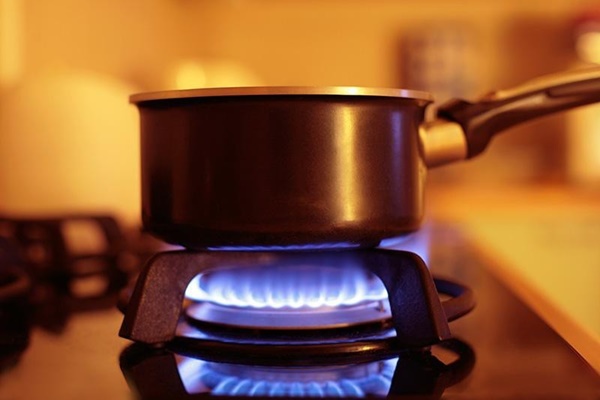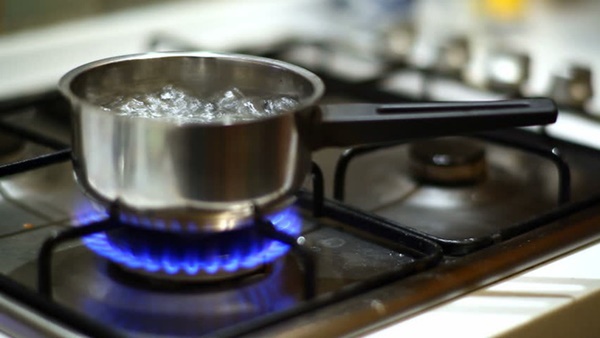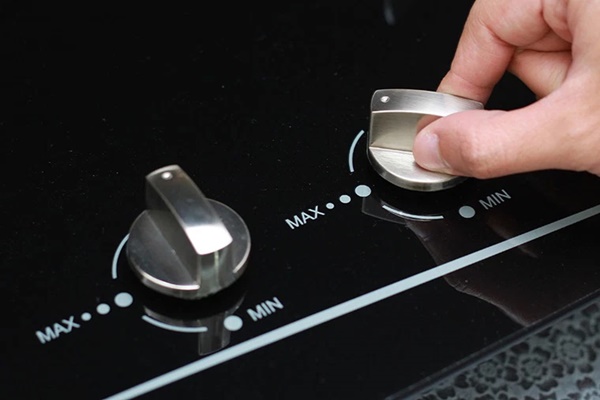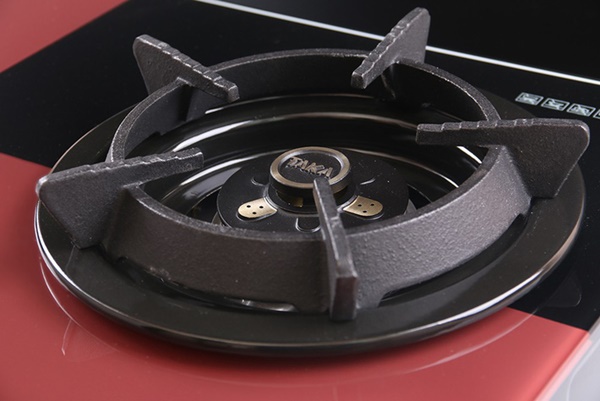Managing a household, one of the headaches for housewives is saving. There are 1001 things that housewives need to pay attention to when it comes to saving, from saving money, saving water, saving gas, saving electricity… Among them, saving gas is also something to be noted if you want to keep the monthly living costs of the family from being too high.
Typically, the longevity of a gas cylinder depends on various factors such as whether the stove is broken or not, whether the cooking utensils are clean, and how the stove is used. So if you want to save gas, note the following tips, the gas cylinder will last longer, thereby helping you save even more money.
1. Adjust the flame
 Don’t think that the larger the flame, the faster the cooking time, the less gas it will consume. If you adjust the flame too large, making the flame bigger than the bottom of the pot, it will only make the gas consume more.
Don’t think that the larger the flame, the faster the cooking time, the less gas it will consume. If you adjust the flame too large, making the flame bigger than the bottom of the pot, it will only make the gas consume more.
Because in that case, instead of concentrating heat on the bottom of the pot, it will be dispersed around, making the food take longer to cook. So, if you need a large flame, adjust it so that the flame fits the circumference of the pot.
Also, use the right size pot for the stove. If you have a large stove, use a large pot. If you have a small stove, use a small pot, so you can avoid the situation of the flame overflowing around the pot.
2. Use the right pots and pans for cooking
If you have a large amount of food, you can use larger pots and pans, but if you have a small amount, you should use smaller ones. This will avoid gas waste. In addition, the contact surface of the pots and pans with the flame must be clean so that the stove does not need to use much fuel to heat the pots and pans faster. Not only that, before cooking, you should wipe away all the water droplets in and around the pot instead of placing them on the stove to dry.
3. Use the right amount of water
 The more water, the longer the boiling time, thereby consuming more fuel. (Photo: Internet)
The more water, the longer the boiling time, thereby consuming more fuel. (Photo: Internet)
Use the right amount of water if you want to save gas. The more water, the longer the boiling time, thereby consuming more fuel. In addition, only add water when necessary while cooking, otherwise it will take more time to boil.
4. Limit the number of times the stove is turned on and off
You may not believe it, but turning the stove on and off many times will waste a lot of gas. Therefore, prepare all the ingredients in advance, know exactly what dishes you will cook, and start cooking right away to save time and minimize the number of times you turn on and off the stove.
 For example, in a case where you are cooking a certain dish. But you forgot or ran out of an ingredient. Then, you open the fridge. Oh no, it’s not there. You have to go to the neighbor’s house, or you have to go buy it. So when you come back, you have to start over.
For example, in a case where you are cooking a certain dish. But you forgot or ran out of an ingredient. Then, you open the fridge. Oh no, it’s not there. You have to go to the neighbor’s house, or you have to go buy it. So when you come back, you have to start over.
5. Pay attention to the cleanliness of the gas cylinder and stove
Regularly clean the gas stove to prevent dust and food debris from clogging the gas holes. Once the gas holes are clogged, the flame will burn unevenly, resulting in more gas consumption and longer cooking time. Additionally, you can use a windscreen for the stove. This device will wrap around the burner head, preventing heat from dissipating outward and directly contacting the bottom of the pot, helping to save energy.
 Windscreen for the stove. (Photo: Internet)
Windscreen for the stove. (Photo: Internet)
Finally, you should lock the gas valve after each use. This way, you can prevent gas leakage and potential hazards.
6. Lock the gas valve after cooking
Many people have a habit of not locking the valve after cooking. However, this habit carries many risks. Especially, if one day, a mouse bites the gas line, the gas will escape. Or in case you open the valve, open the stove, the gas will escape at that time. This issue not only wastes gas but can also be dangerous.
Therefore, after cooking, to save and ensure safety, you should lock the gas valve and turn off the stove. In addition, you should regularly check the gas line, gas valve. The inspection will help you identify and fix any problems and prevent gas leaks and potential hazards.
According to Vietnamese Nhip Song Viet
































